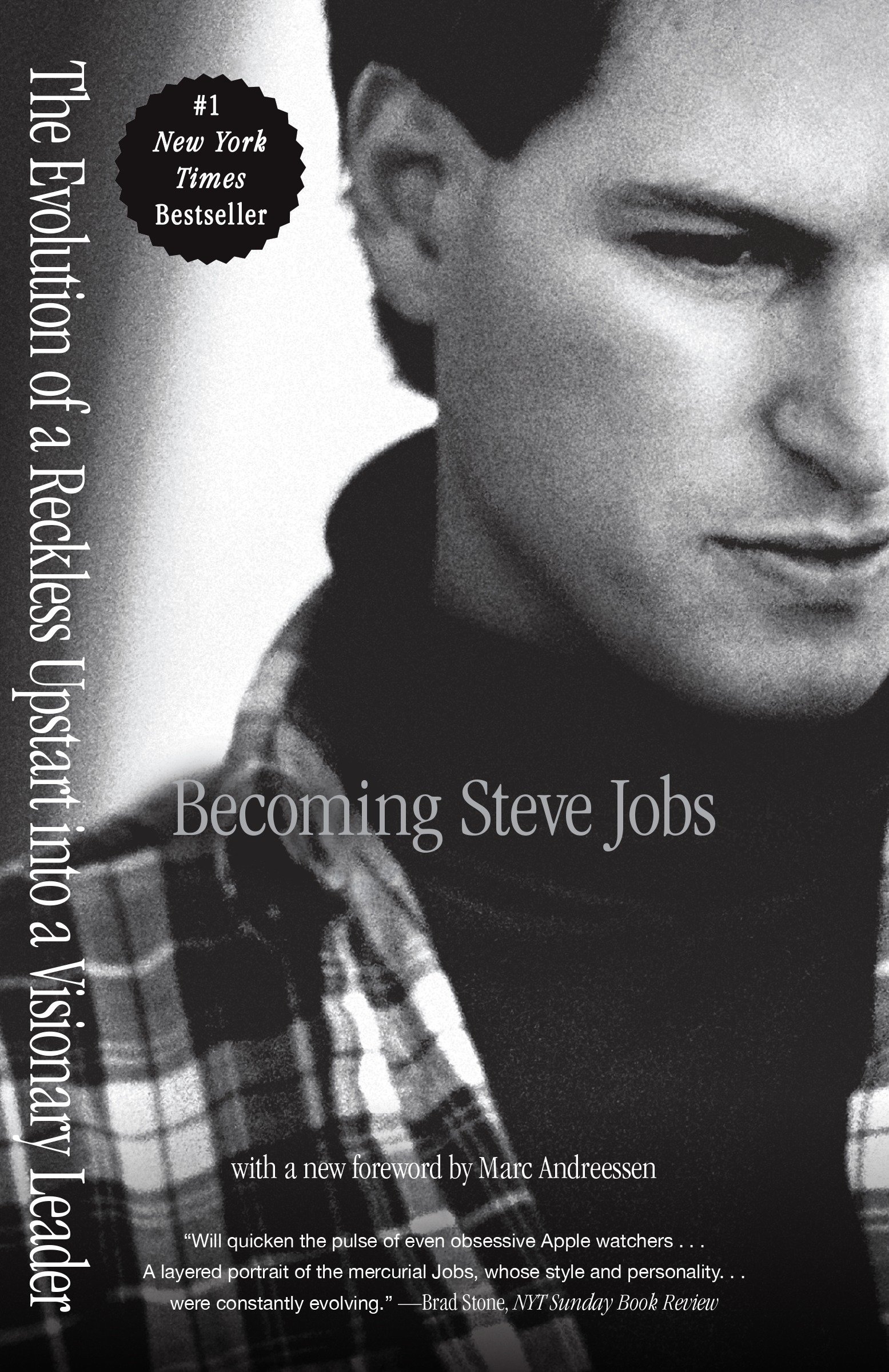
21 Oct 2016

I found Becoming Steve Jobs by Schlender & Tetzeli to be a much more informative read than Isaacson’s official biography, particularly on the intersection of Jobs/Next/Pixar/Apple.
I captured some of my favorite quotes from the book and include quick thoughts on each.
Steve, during an interview he gave in the Next days:
As we talked, he drank steaming hot water from a pint beer glass. He explained that when he ran out of tea one day, it dawned on him that he liked plain old hot water, too. “It’s soothing in the very same way,” he said.
On Steve’s instinct:
Steve was innately comfortable trusting his gut; it’s a characteristic of the best entrepreneurs, a necessity for anyone who wants to make a living developing things no one has ever quite imagined before.
On his decisiveness:
Steve had a kind of hyperawareness of his surroundings that allowed him to leap at opportunities that presented themselves.
This is particularly interesting, since it proves true of acquired companies, incubators, over-funded startups, etc:
Despite what he said about wanting to repeat the experience of the Apple II and the Mac, what Steve really wanted at NeXT was the garage spirit of a startup meshed with the safety, status, and perks of the Fortune 500. It wasn’t a combination he could pull off.
On hiring the best people:
That’s because Steve was always hell-bent on hiring the very best people in the world, especially engineers. “In most businesses, the difference between average and good is at best 2 to 1,” Steve once told me. “Like, if you go to New York and you get the best cabdriver in the city, you might get there thirty percent faster than with an average taxicab driver. A 2 to 1 gain would be pretty big. In software, it’s at least 25 to 1. The difference between the average programmer and a great one is at least that. We have gone to exceptional lengths to hire the best people in the world. And when you’re in a field where the dynamic range is 25 to 1, boy, does it pay off.
On switching to management vs. remaining an individual contributor:
More important for Steve Jobs, overseeing this motley crew had turned Catmull into an expert, imaginative manager of creative people. For years Catmull found himself occasionally regretting his decision to abandon his dream of being an animator. But as he steered this odd and talented group past one crisis after another, he started treating management itself as a kind of art, and accepted that this was how he could best contribute. Later in his life, he would come to be recognized as one of the most extraordinary managers in the world; in 2014, he published a brilliant business bestseller, Creativity, Inc., about what it takes to lead a company of creative people.
Here’s to the crazy ones…
Steve, you’re not wearing shoes! Don’t you want to wear some shoes for the cover of Fortune?” Steve shrugged and said, “Sure, fine.” He ran upstairs, grabbed a pair of sneakers, and came back wearing them—with the laces left untied.
On becoming a billionaire after Pixar IPO’d:
Catmull saw Steve pick up the phone in an office to the side. “Hello, Larry?” Steve said into the handset, once his pal Ellison was on the line. “I made it.” Steve, who owned 80 percent of the company, was a billionaire.
All of the raw technology paid off when it became the foundation for OSX and iOS when Next was acquired and Steve returned to Apple:
The original dream—that NeXT would create the world’s next great computer—was over. “We got lost in the technology,” Steve would later tell me.
Even Steve wrestled with existential questions and uncertainty:
But that didn’t mean he himself was ready to take on the job of running Apple. According to his wife, Laurene, he was still torn about whether to go back. The two of them debated the matter endlessly. […] But did he really want to try to ride to the rescue of Apple when it hardly resembled the company he had tried to build? Was he even convinced it had the people and resources to become competitive? Did he want to work that hard, now that he had a young family? Did he want to risk what was left of his reputation by tilting at windmills? These questions were all on his mind. He had to become convinced that enough of the “true” Apple remained before he would ever consider taking ultimate responsibility for it. Steve didn’t know it at the time, but his indecisiveness was actually a kind of breakthrough. Steve was developing a more nuanced, measured approach to decision making. Steve had grown more comfortable with waiting—not always patiently—to see what developed, rather than jumping impulsively into some new venture where he thought he could once again astound the world. When he needed to—as when the opportunity arose to sell NeXT to Apple—he could strike quickly. But from now on he would act with a piquant combination of quick, committed actions and careful deliberation.